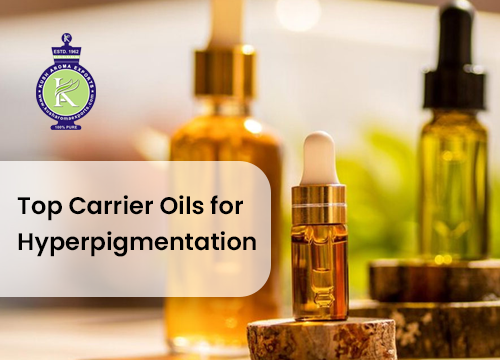Hair loss affects many people at various stages of life. Stress, poor nutrition, hormone changes, or environmental factors can cause this frustrating and concerning issue. While many products claim to solve this problem, nature offers its own gentle and effective remedies: essential oils. People have used essential oils to improve hair health for hundreds of years. These natural plant extracts contain powerful ingredients that can strengthen hair roots, encourage hair growth, and limit breakage. This blog will explore the top essential oils that help to reduce hair loss and how to use them.
Why Pick Essential Oils to Reduce Hair Loss?
Let’s understand the benefits of essential oils before we look at specific ones:
Natural & chemical-free: Free from harsh additives or artificial ingredients
Head massage: A lot of oils boost blood flow to the head, helping hair grow.
Germ-fighting power: Some oils keep the scalp clean and stop dandruff or infections.
Relaxation: The smell of these oils can also cut down on hair loss caused by stress
1. Rosemary Essential Oil
Rosemary ranks among the most studied essential oils to boost hair growth. It boosts blood flow to the scalp, allowing more nutrients to reach hair follicles.
Benefits: Encourages hair growth, makes hair stronger at the root, Tackles dandruff and dry scalp
How to use: Combine a few drops of rosemary essential oil with a base oil like coconut or jojoba. Rub it into your scalp and keep it on for at least 30 minutes before rinsing.
2. Lavender Essential Oil
Lavender soothes both the mind and scalp. Its germ-fighting and antioxidant qualities help calm irritated scalps and spark new hair growth.
Benefits: Cuts down on stress-linked hair loss, enhances scalp health, and backs the hair growth cycle.
How to use: Put 5–6 drops in your go-to carrier oil and rub into the scalp before bed. You can leave it on all night for deep feeding
3. Peppermint Essential Oil
This oil cools and boosts blood flow. It can refresh the scalp and help hair grow thicker and healthier.
Benefits: Wakes up the scalp and improves blood flow. Helps new hair grow and provides a refreshing feeling to your hair.
How to use: Mix it with a carrier oil before applying and rub it into your scalp. The tingling you feel shows it’s doing its job!
4. Tea Tree Essential Oil
When hair loss stems from scalp problems like dandruff or buildup, tea tree oil can help. It has an impact on fungi and bacteria, which keeps your scalp clean and healthy.
Benefits: Tackles dandruff and scalp infections, opens up hair follicles, lessens itching and swelling.
How to use: Put a few drops in your shampoo or mix with a carrier oil to apply straight to your scalp.
5. Cedarwood Essential Oil
Cedarwood helps to balance oil on your scalp and can boost hair growth by improving blood flow to hair follicles.
Benefits: Makes hair roots stronger, Cuts down on thinning and breakage, smells like wood, and helps you relax.
How to use: Mix with oils such as lavender or rosemary and use as a scalp treatment once a week.
6. Clary Sage Essential Oil
Clary sage has linalyl acetate, which helps control oil production and cuts down on inflammation. It works well for people with greasy scalps or hair loss due to hormones.
Benefits: Evens out scalp oil Makes hair stronger. Lowers stress and hormone issues.
How to use: Blend with a carrier oil and rub into the scalp once or twice every week.
Using Essential Oils the Right Way
Essential oils are strong, so handle them.
Mix them with a carrier oil like coconut, castor, almond, or jojoba oil before applying.
Test a small amount on your skin first to see if it causes any irritation.
Stick to a routine and apply them two or three times a week for a couple of months to notice changes.
Keep them away from your eyes and other sensitive areas.
Easy Hair Oil Recipe to Reduce Hair Fall
Try this easy homemade mix:
What you need:
2 tablespoons of coconut oil
2 tablespoons of castor oil
5 drops of rosemary essential oil
5 drops of lavender essential oil
3 drops of peppermint essential oil
Steps:
Put all the ingredients into a little bottle and mix them well. Warm it up a bit before using. Massage the mixture on your scalp for about 5 to 10 minutes. Keep it on your hair for at least an hour or even overnight. Use a gentle shampoo to rinse it off.
Final Tips
Dealing with hair fall can feel frustrating, but nature offers ways to bring back stronger and healthier hair. Essential oils not only help your hair and scalp feel refreshed, but they also bring calm and help ease stress. This matters a lot in managing hair loss.
Try giving your scalp the goodness of natural oils, and watch your hair grow stronger and shine brighter. Don’t forget every drop can make a difference!










